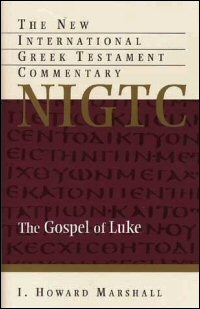Each day has a set reading, theme and selected notes for explanation, reflection, and application. One of the purposes in my mind when writing the notes was to show believers they can take real lessons from every day of the 365 day connect the testaments Bible reading plan.
CONFESS
Date: June 25th
Today’s Reading: Neh 9:1–10:27, 1 John 5:13–16, Ps 111:1–10
Today’s Themes: Confess
Today we learn about at least six things that we should boldly confess to the glory of God.
Confess that God is the Creator
“You are the LORD, you alone. You have made heaven, the heaven of heavens, with all their host, the earth and all that is on it, the seas and all that is in them; and you preserve all of them; and the host of heaven worships you. Nehemiah 9:6 (ESV)
The Levites led the people in praise of God the Creator of the universe. God deserves honour, praise, worship and adoration.
The UK government recently updated it’s funding guidelines for free schools and academies stating that they cannot teach creationism and instead “must” teach the theory of evolution.
In this time God as the creator and sustainer of the Universe is under severe attack. Even though the evidence clearly points to God, man in his rebellion and ignorance ignores the evidence of intelligent design in creation, instead embracing the entirely illogical theory of evolution.
Confess that God is creator today, that He made the entire world as the Bible records in just 6 days, that He sustains creation and that He alone is God. If you struggle making this confession, then cast down the idols of conventional wisdom and the approval of man and bow at the throne of the King, the Creator, God! Romans 1:25.
It is our delightful duty as creatures to worship our Creator as the hosts of heaven do. Colossians 3:10 and 1 Peter 4:19.
Confess that God is Sovereign
You are the LORD, the God who chose Abram and brought him out of Ur of the Chaldeans and gave him the name Abraham. Nehemiah 9:7 (ESV)
God is free! God chooses! God does whatever He wants to do! God chooses whoever He wants to!
The above statements fly in the face of our “enlightened” western society, which exalts the choice of man above all things and our own warped ideas of fairness and equality.
Confess today that God is sovereign, that God chose Abraham, Israel and even chose to send His Son and chose to save you. James 2:5, 1 Thessalonians 1:4, Colossians 3:12 and 1 Corinthians 1:27.
If you have a problem confessing this in praise to God then cast down the idols of “mans choice and sovereignty” and fallen ideas of fairness and equality. Turn and bow at the throne of the Sovereign King.
God alone is God, God alone is Sovereign, He is the King and we worship him today. The God who chose Abraham. Hebrews 11:8
Confess our sin and God’s mercy
They refused to obey and were not mindful of the wonders that you performed among them, but they stiffened their neck and appointed a leader to return to their slavery in Egypt. But you are a God ready to forgive, gracious and merciful, slow to anger and abounding in steadfast love, and did not forsake them. Nehemiah 9:17 (ESV)
The Levites led the people in the confession of their sins and the sins of their forefathers. At the same time they focused on God’s character as a merciful and gracious God.
We must confess our sins to God. At the same time we should also confess the truth of God’s word that God is merciful, forgiving and gracious, slow to anger and abounding in love.
With a God like this we can freely confess our sins and receive his mercy. 1 Peter 2:10.
John encourages us in 1 John 1:9 “If we confess our sins, he is faithful and just to forgive us our sins and to cleanse us from all unrighteousness. “
Hebrews also encourages us in Hebrews 4:16 “Let us then with confidence draw near to the throne of grace, that we may receive mercy and find grace to help in time of need.”
Confess your shortcoming and affirm God’s mercy today.
Confess that God keeps covenant
“Now, therefore, our God, the great, the mighty, and the awesome God, who keeps covenant and steadfast love, let not all the hardship seem little to you that has come upon us, upon our kings, our princes, our priests, our prophets, our fathers, and all your people, since the time of the kings of Assyria until this day. Nehemiah 9:32 (ESV)
Our God is a covenant keeping God, we can take Him at His word and trust His promises. If doubt or fear is surrounding you today, remember that God has cut covenant with you today through the cross and keeps that covenant.
Our God is mighty, He has the power and strength to keep the covenant so let our faith arise and trust in the one who has spoken and will not back down.
Confess God’s own word before him today. 2 Corinthians 1:20.
Confess that you have eternal life
I write these things to you who believe in the name of the Son of God that you may know that you have eternal life. 1 John 5:13 (ESV)
This whole letter was written to assure true believers that we have eternal life in Jesus Christ. This should fill us with joy and encourage us today. We are not called to doubt and fear over our eternal destiny.
In Islam it is taught that Mohammed said he is not sure what Allah would do with him and that all Muslims have no guarantee that Allah will treat them favourably in the time to come, there is no security, they just do not know if all the good has outweighed the bad.
We are grateful that Yahweh the true God gives us assurance. We can trust Him and take Him at His word.
Walk in the confidence of one who has eternal life today.
Confess your needs to God
And if we know that he hears us in whatever we ask, we know that we have the requests that we have asked of him. 1 John 5:15 (ESV)
We can open our mouths and ask God about the things we need and want and have the confident faith that He hears us and grants our requests.
As Pastor says, let’s rejoice in the God who answers our prayers, not the power of our prayers.
God’s works are great
Great are the works of the LORD, studied by all who delight in them. Psalm 111:2 (ESV)
As we saw in today’s first note, our God is the great creator. God is also our great redeemer. If we delight in the works of the Lord we will study His great works and proclaim His glory to the ends of the earth.
Additional resources
The Gospel Coalition on 1 John 5
Scott, C. J. (2017). Daily truth: study and application notes for the 365 day connect the testaments bible reading plan. Humble Majesty.














 in the ancient Near East
in the ancient Near East







